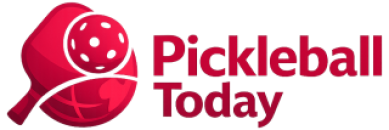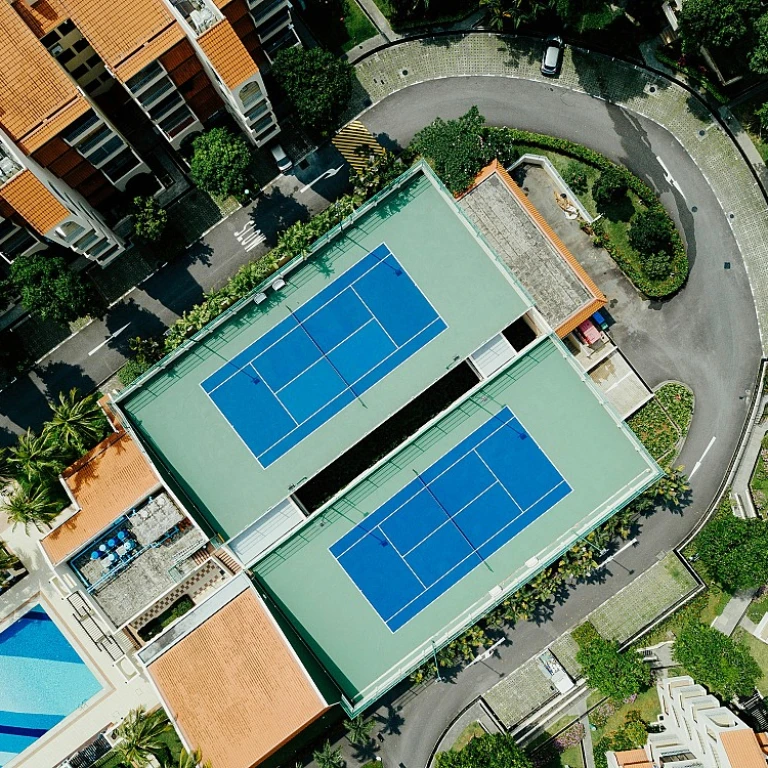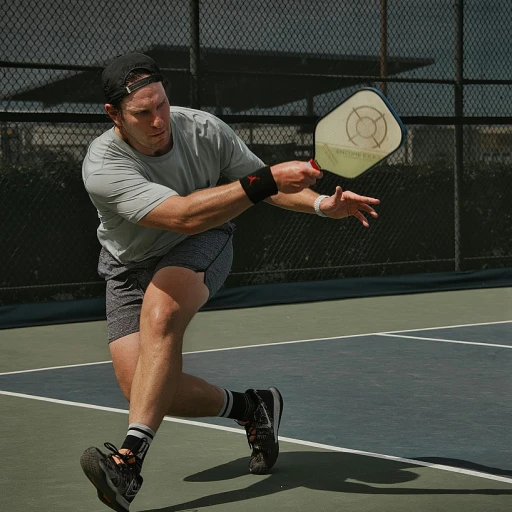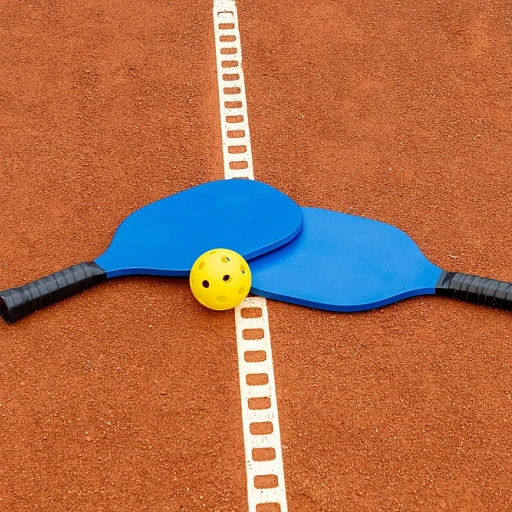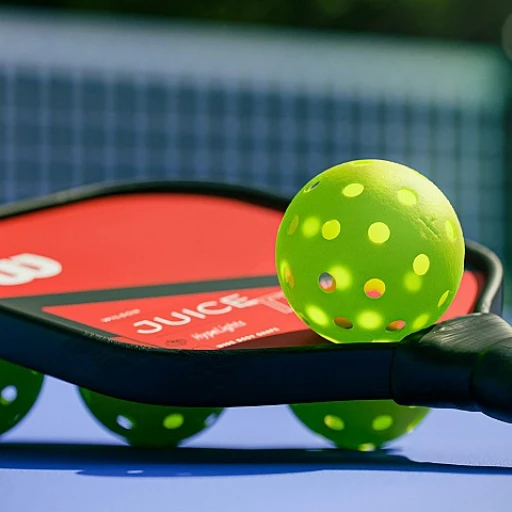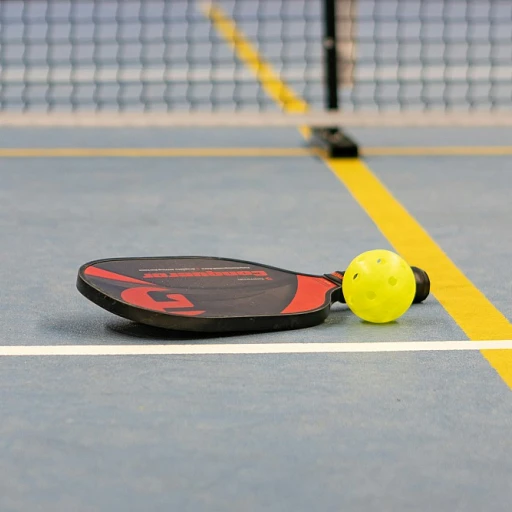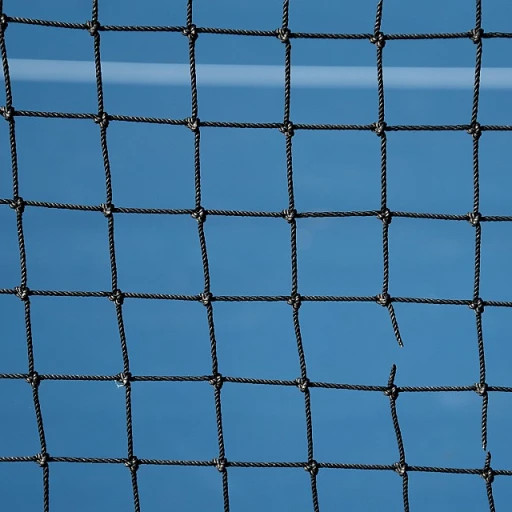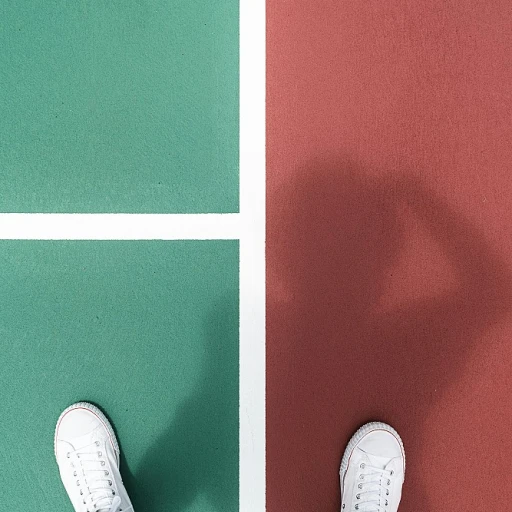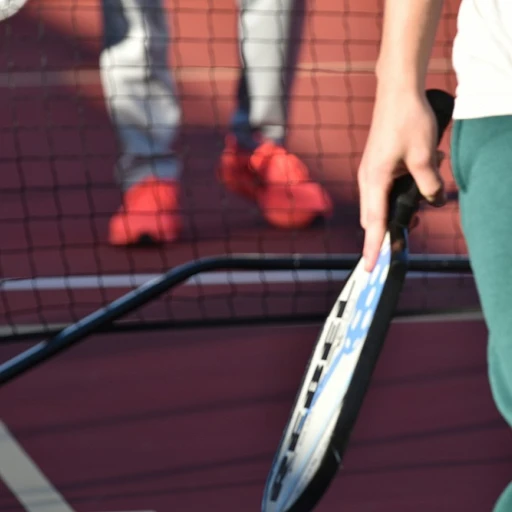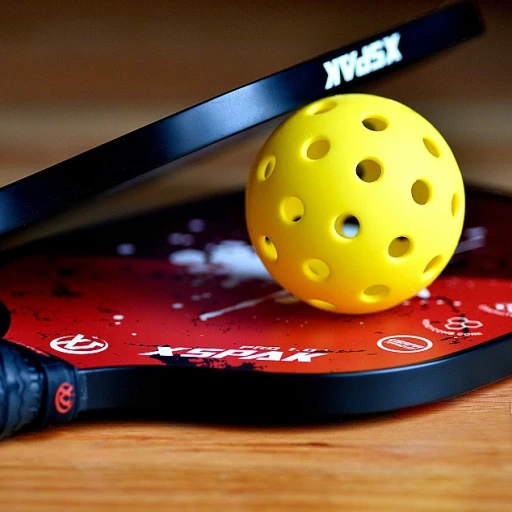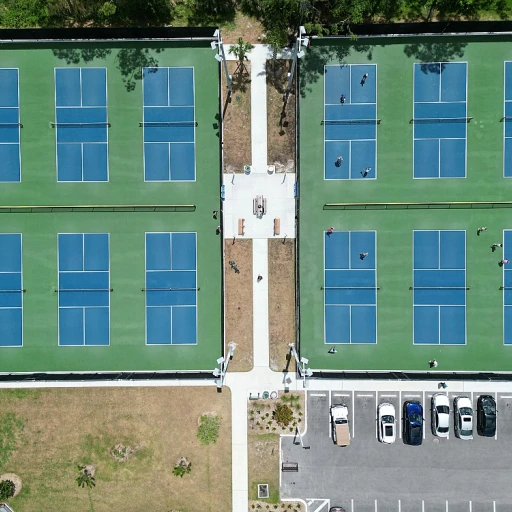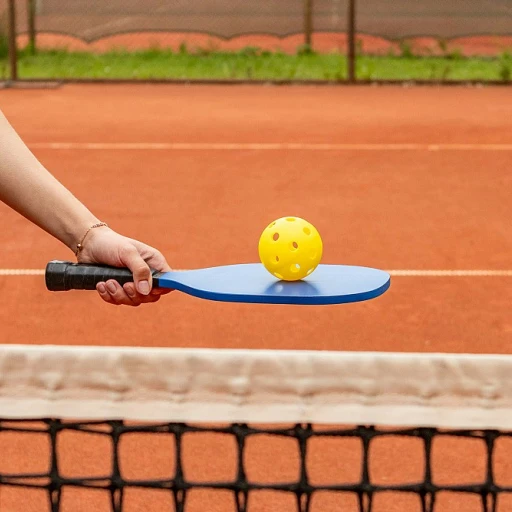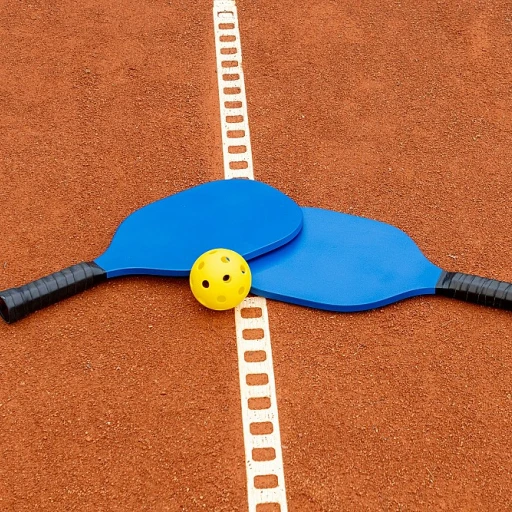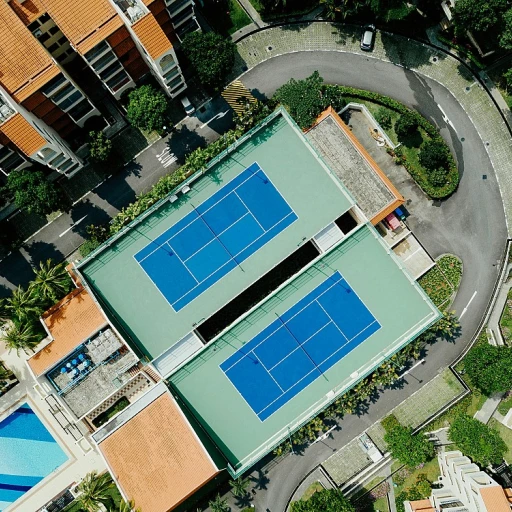
Understanding Pickleball Basics
Introduction to Pickleball: A Growing Sport
Pickleball has emerged as one of the most popular and fastest-growing sports in recent years, captivating players of all ages and skill levels. Combining elements of tennis, badminton, and table tennis, pickleball is a unique, engaging game played on a court that resembles a smaller version of a tennis court.
The Basics of Pickleball
To start your pickleball journey, understanding the game’s fundamental rules and equipment is essential. Pickleball is played using a paddle and a plastic ball with holes, similar to a wiffle ball. The sport can be played in singles or doubles format, accommodating different skill levels, whether you're just learning the ropes or aiming to refine your technique.
Learning the Game
Players have the option to take pickleball lessons, either in group classes or private lessons, to gain a better grasp of the game. Weekly lessons under the guidance of a certified coach can help improve various aspects, such as game strategy, serve techniques, and footwork. PPR certified instructors can provide structured classes tailored to your needs, ensuring progression at your own pace. As you play more, you will naturally develop your game understanding and on-court confidence.
Pickleball's Appeal
For those new to the sport, pickleball offers an approachable introduction to racquet sports without the demanding physical exertion required in tennis. This game not only enhances agility and coordination but also fosters a friendly community among players. The social aspect, combined with the fun of learning and competing, is part of what makes pickleball so attractive to both beginners and seasoned athletes.
Why Choose a Local Pickleball Instructor?
The Benefits of Choosing a Local Pickleball Instructor
When diving into the world of pickleball, opting for a local instructor can significantly enhance your learning journey. Whether you're a beginner or looking to refine your skills, the advantages of having a nearby coach are numerous.
Accessibility and Convenience
One of the primary benefits of choosing a local pickleball instructor is the convenience it offers. With lessons near your home or workplace, you can easily fit classes into your busy schedule. This eliminates the hassle of long commutes and allows you to focus more on improving your game. Additionally, local instructors often have flexible class schedules, accommodating different skill levels and preferences.
Community and Networking
Joining local pickleball classes not only helps you improve your skills but also connects you with a community of like-minded individuals. This sense of community can be motivating and offer opportunities for friendly matches and group classes. Engaging with a local pickleball community can also lead to discovering new playing partners and enhancing your social network.
Personalized Attention
Local instructors are often more invested in their students' progress. They can provide personalized attention and tailor lessons to suit your specific needs. Whether you prefer private lessons or group classes, a local instructor can adapt their teaching style to help you advance your skills effectively. Having a PPR certified coach nearby means you can receive expert guidance, which is crucial for mastering the nuances of the game.
Weather Considerations
Inclement weather can sometimes disrupt outdoor activities, including pickleball. Local instructors are familiar with the best indoor courts in the area, ensuring that your learning experience is not hindered by unpredictable weather conditions. This knowledge is invaluable, especially if you're committed to regular weekly lessons.
To elevate your game, consider the benefits of choosing a local pickleball instructor. With the right guidance, you can progress through different skill levels and enjoy the sport to its fullest.
Qualities to Look for in a Pickleball Instructor
Key Traits of an Exceptional Pickleball Coach
When seeking a pickleball instructor, it's essential to look for specific qualities that can elevate your learning and playing experience. Here are some key attributes that an outstanding pickleball coach should possess:- PPR Certified Expertise: Ensure that the instructor is PPR certified. This certification indicates that the coach has met standardized coaching competencies recognized by USA Pickleball. Certification can provide confidence that lessons will be taught by a knowledgeable professional.
- Adaptability to Skill Levels: Whether you're new to pickleball or have advanced skills, an instructor should be able to tailor lessons to match your abilities. They should assess your skill level and offer a lesson plan that helps you gradually improve while keeping the class engaging and challenging.
- Effective Communication Skills: A great coach will be an effective communicator, able to break down complex pickleball strategies into understandable components. Clear instructions and feedback are crucial for rapid improvement on the court.
- Proven Track Record: Look for testimonials or reviews from previous students. These can offer insight into the coach's ability to lead impactful lessons and how their past students have benefited from their teachings.
- Flexibility in Class Formats: Depending on your preferences, you might be interested in private lessons or group classes. An ideal instructor should offer both options, allowing you to choose what best fits your learning style and schedule.
- Understanding of Personal Goals: A coach should take the time to understand your personal goals, whether it's to refine your skills for a local pickleball tournament or to simply enjoy the game recreationally. By aligning lessons with your goals, your time on the court will be more productive and fulfilling.
How to Find Pickleball Instructors Near You
Locating Nearby Pickleball Instruction Opportunities
When you're ready to boost your pickleball skills, finding the right instructor near you is key. With growing popularity, it's exciting that so many resources are now available, making it easier to find local pickleball lessons and instructors to guide you whether you're starting or refining your technique.- Online Directories: Use online platforms dedicated to sports and activities to search for "pickleball classes near me." These directories often list coaches, certified by organizations such as PPR, offering weekly lessons at different locations.
- Community Centers: Check with local community centers where pickleball courts are often available. These centers frequently offer group classes and have information on registered, certified coaches who conduct pickleball lessons there.
- Tennis Clubs: Don’t overlook local tennis clubs. Many are expanding to include pickleball and have instructors who can offer both tennis and pickleball lessons.
- Social Media and Forums: Social media groups and forums established for pickleball enthusiasts can be great resources. Here you can learn about private lessons or group classes and sometimes even free play sessions organized by local pickleball players.
- Word of Mouth: Asking around in your local pickleball community or at courts can also yield valuable recommendations from fellow players about experienced instructors.
Evaluating Potential Instructors
Assessing Instructor Options
Finding the right pickleball instructor for your skill level and learning goals is essential. Once you've narrowed down your options, it's time to evaluate how well they'll fit your needs.- Experience and Certification: Check if the instructor is PPR certified, which indicates they have recognized coaching skills and expertise in pickleball. Many top instructors are often certified through organizations like USA Pickleball.
- Class Format: Determine whether the instructor offers group classes or private lessons. Group classes are great for learning with others and can be more affordable, while private lessons allow for personalized attention and focus on specific skills.
- Teaching Style and Method: Consider if the instructor’s teaching style aligns with your learning preferences. Some players thrive in structured lessons while others prefer a more flexible coaching approach.
- Class Schedule and Location: Make sure the class schedule fits with your availability. If you live on Long Island or another specific area, it’s important to find pickleball instructors offering lessons nearby to avoid long commutes. Also, inquire if there are rescheduling options in case of inclement weather conditions.
- Reputation and Reviews: Seek feedback from other students or read online reviews to understand their experiences. Positive reviews can be a good indicator of an instructor’s effectiveness and the quality of their lessons.
Maximizing Your Learning Experience
Strategies to Enhance Your Pickleball Skills
Maximizing your learning experience in pickleball involves a combination of consistent practice, effective feedback, and the right coaching. Here are some strategies to make the most of your lessons:- Regular Practice: Schedule regular pickleball lessons to maintain consistency. Whether you opt for weekly lessons or private lessons with a certified coach, consistent practice on the court is key to improving your skills.
- Set Clear Goals: Before starting with a pickleball coach, communicate your goals. Whether you're a beginner trying to grasp the basics or an experienced player aiming to elevate your game, a clear objective ensures your instructor tailors the lessons to your skill level.
- Utilize Different Learning Formats: Diversify your learning by alternating between private lessons and group classes. Group lessons pickleball provide different dynamics and playing styles, while private sessions offer personalized attention from the instructor.
- Adapt to Inclement Weather: Have a backup plan for your class schedule if bad weather affects outdoor courts. Some venues may offer indoor alternatives, ensuring you don’t skip content due to unplayable conditions.
- Seek Feedback and Adjust: Regular feedback from your pickleball instructor can highlight areas of improvement. Don’t hesitate to ask questions and request adjustments in technique or strategy.
- Participate in Friendly Matches: Beyond structured lessons, engage in casual matches with peers of similar skill levels. This opportunity to practice in a less formal setting helps implement what you've learned in your pickleball lessons.
